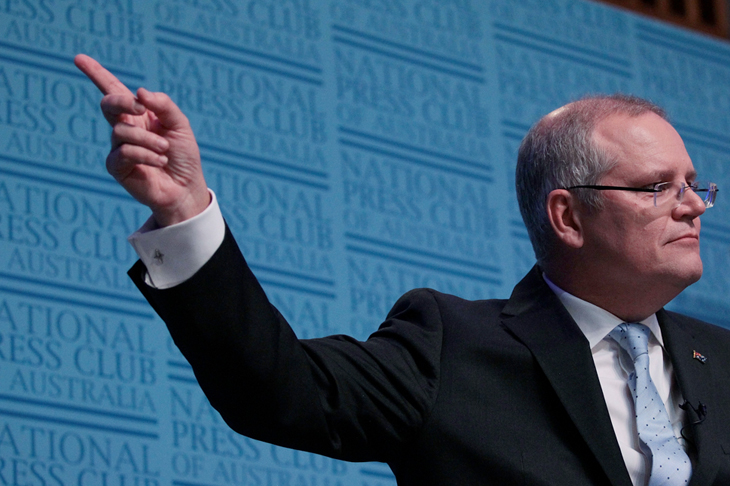Small businesses and individuals income-earners beware! Now that Tax Commissioner Chris Jordan’s successful five-year multi-billion dollar campaign against tax dodging by multinationals and the big end of town has, he says, gone about as far as it can go towards helping the Turnbull government fix its deficit problems, his agenda for 2018 promises to be far more financially rewarding – but much more politically dangerous. He reckons he has reduced the gap between what big business ought to pay and the $41 billion they actually do cough-up to only $2.5 billion, which he plans to keep on attacking. But he will now redirect his main focus on a much bigger gap – between what small business and individuals really earn and what tax they should pay. If there were political as well as fiscal benefits to the government from the ATO’s big business and multinational successes, there can only be political nightmares from Jordan’s next target – small businesses and individuals, cash only businesses with undeclared income, unpaid superannuation guarantee contributions and fictitious deductions. Most in the firing line will be voters; many of the small businesses affected will be owned by traditional Coalition supporters. Jordan, appointed by Labor Treasurer Swan and reappointed by Liberal Treasurer Morrison, has political leanings that are evident from his period as an advisor in John Howard’s office in the 1980s before becoming head of KPMG in NSW. He is well aware of the sensitivity of his 2018 agenda: ‘Small business and individuals would not accept a greater focus on them unless they were confident we’d done our work on large corporates.’
But the big ticket successes have not benefitted the ATO’s image. The latest annual independent survey of attitudes to the ATO shows little improvement in community perceptions, although it does score highly on integrity but low in service and technology. Jordan is ready to concede that neither he nor the ATO is currently popular; his 2018 agenda is unlikely to improve things. It should provide plenty of ammunition to ATO critics like the Australian’s Bob Gottliebsen who followed up his recent successful campaign against the ATO’s removal of some ABNs in a dispute over contracting or employing, by enthusiastically labelling last month’s release of the widely welcomed proposed legislation to allow the ATO to provide credit agencies with details of defaulting businesses as ‘effectively handing the ATO an atom bomb to blow up small businesses; in its current state the ATO is in no position to properly handle that extreme power’. But the business community regards this greater transparency as ‘a positive measure for small businesses enabling them to evaluate their dealings with other businesses that may not be paying their tax debts on time. It helps them to avoid incurring losses by assessing the other parties risk and changing their trade terms accordingly’. And as the Tax Institute pointed out, the ATO stands to benefit as the change ‘should encourage taxpayers to engage with the ATO to prevent their debts from being reported, or motivate some taxpayers to promptly resolve their tax debt and voluntarily comply with… tax obligations’.
While recent contact with the ATO makes people more likely to see the ATO positively, according to its latest survey, the overwhelmingly poor public perception of the ATO really relates to its past – and justifiably so. The ATO’s reputation for arrogance and bullying was at its height during the pre-GST bad old days of multiple rates of sales tax, where, as Parliamentary Secretary to the Treasurer, I was inundated with complaints about ATO threats to small businesses arising from false allegations of incorrect rates charged, and subsequent penalties, that could be resolved by ‘an agreed settlement’; effectively taxation by blackmail. Senate Estimates committees uncovered years of inappropriate behaviour by out-of-control tax offices, Chatswood being notorious. The current ATO is a very different beast from those days, with Jordan being described in Chartered Accountant as having ‘a better reputation than any Australian tax chief in living memory’. But he may end up with few friends – and some political enemies – after he pings small business and individual tax cheats in the run-up to next year’s election.
Got something to add? Join the discussion and comment below.
Get 10 issues for just $10
Subscribe to The Spectator Australia today for the next 10 magazine issues, plus full online access, for just $10.
You might disagree with half of it, but you’ll enjoy reading all of it. Try your first month for free, then just $2 a week for the remainder of your first year.














Comments
Don't miss out
Join the conversation with other Spectator Australia readers. Subscribe to leave a comment.
SUBSCRIBEAlready a subscriber? Log in